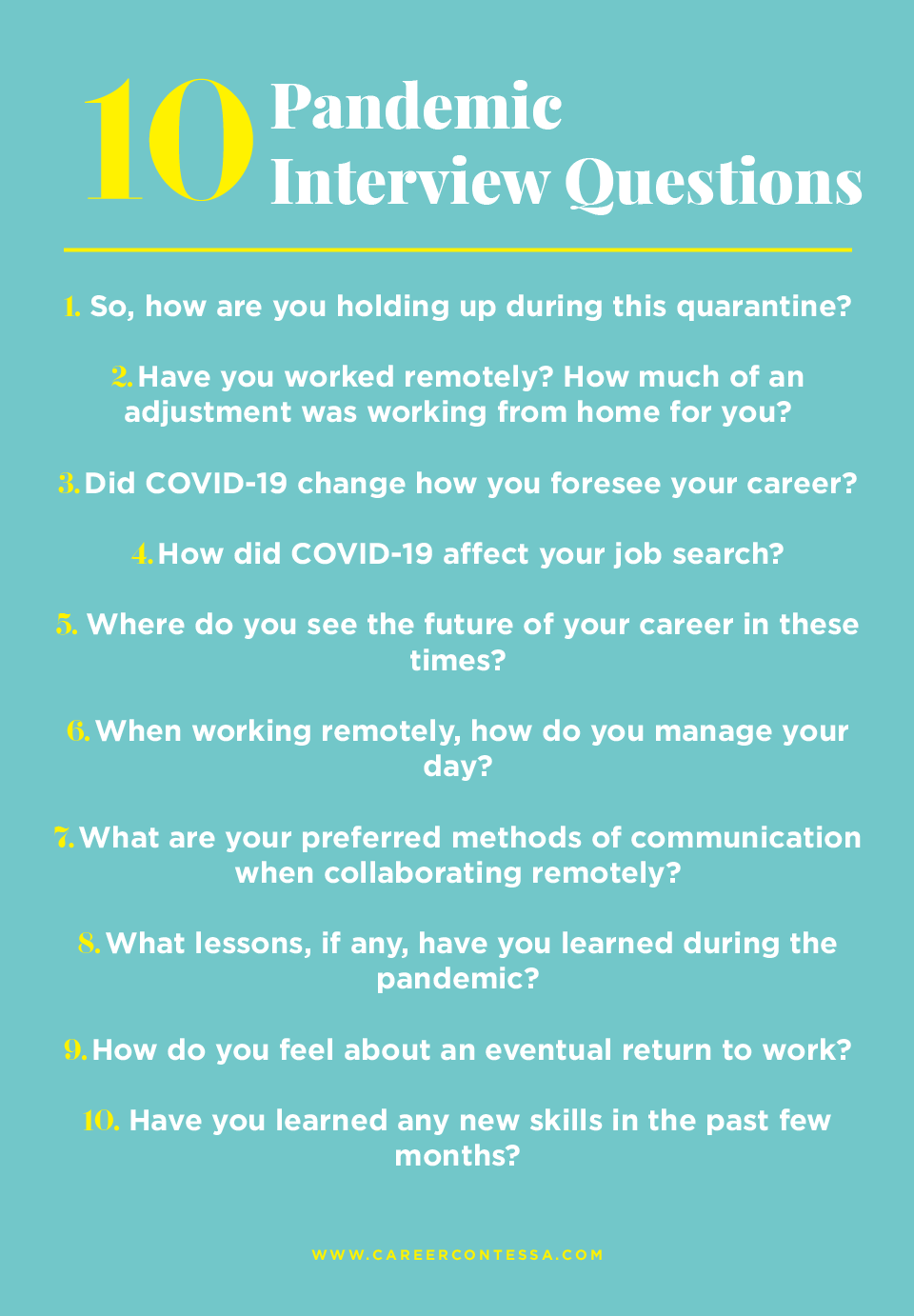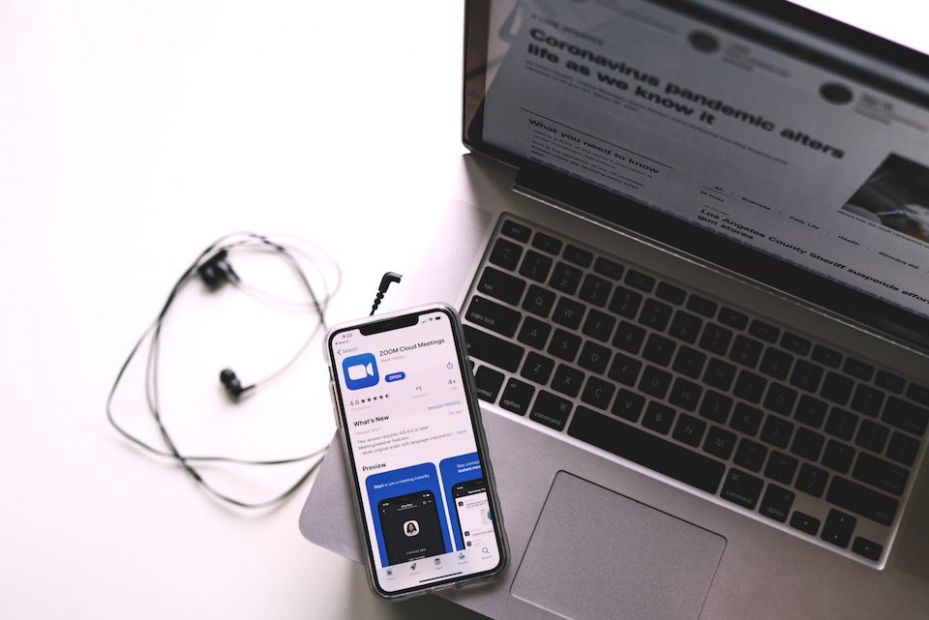Is screaming for five minutes straight an appropriate answer to an interview question? Maybe not.
It ripped the world we were used to into pieces and we are all—every one of us—trying our best to navigate this new reality while conserving ourselves.
And these questions aren't going anywhere.
Table of Contents
We wanted to take time to prepare you for these questions—even when screaming into the void seems to be an appropriate response to "So, how are you holding up?"
Why Pandemic Interview Questions Are Still So Important
We want to yell it from the rooftops. Empathy is important!
One silver lining to COVID is that it brings more empathy-based questions to the interview process. If that's the upside to all the downsides, I guess we'll take it.
Empathy is going to be intrinsic in all of these pandemic interview questions. As a candidate, we think that answering these questions with empathy in mind is important.
Equally important is volleying these questions back to the interviewer—as we're all navigating a tough time right now.
Pandemic Interview Questions (+ How to Answer Them)
The following are some pandemic-specific interview questions that probably won't go away any time soon. 2020 marks the year where the traditional workforce changed forever.
The three keywords we want you to keep in mind when answering these questions are:
- Empathy (we went over this one)
- Adaptability (how you've taken the lemons)
- Resilience (and how you've made lemonade)
Last, but certainly not least, it's important that you ask the interviewer your own questions about how they handled/are handling the pandemic.
Let's dive in. These links will take you to each separate category:
1: How Was Your Experience in Quarantine?
We're not telling anybody how to do their job, but this should be every interviewer's first question.
There is no shame in admitting struggle, difficulty, and—to be frank—fear. However, when speaking about the struggle piece of it, be sure to highlight how you're adapting, and the steps you're taking to navigate this tough time. Think of the
power of your personal resilience—and highlight that.
2. How Much of an Adjustment Was Working from Home for You?
Most people are navigating
working from home for the first time. Feel free to be forthcoming in this answer.
For added color, you might explain how the switch was challenging at first—along with changes you made to make your work-from-home situation work for you, your career, and your home life.
Be creative with your answer.
3. Did COVID-19 Change How You Foresee Your Career?
COVID-19 changed so much.
Explain to the interviewer how you navigated this time. If you endured a
layoff from an industry that was particularly affected, explain how that factored into choosing the job for which you are interviewing.
4. How Did COVID-19 Affect Your Job Search?
Be honest. Here's the thing about COVID-19.
It has changed how everyone is looking for a job—and it has changed how employers look for their employees—both in the functionality of the interview and in the skills they're looking to harness.
The hiring manager is probably just as worried as you when it comes to their own career. By answering this question honestly, a recruiter or hiring manager is gaining perspective into what the
job search looks like for candidates.
5. Where Do You See the Future of Your Career in These Times?
Try to steer clear from throwing your hands up in defeat when asked a question like this.
Instead, explain how your particular industry has been affected, what you've learned about how it's going to look in "the new normal" and how you plan to adapt to that.
6. When Working Remotely, How Do You Manage Your Day?
Many organizations are hiring remotely for the first time.
They are onboarding remotely for the first time. They are building new teams—for the first time—on an entirely remote basis. As a result, many of these COVID-19 interview questions are actually helping them to navigate forward.
7. What Are Your Preferred Methods of Communication When Collaborating Remotely?
We are huge fans of
communication preferences. This pandemic has worked favorably for some—and
extremely unfavorably for others.
While some folks yearn for daily human connection, other more
introverted employees prefer communication to be concise and infrequent.
Do you like to Slack all day? Do you prefer
Zoom meetings to phone calls? Will you answer emails after a certain time?
8. What Lessons, If Any, Have You Learned During the Pandemic?
Gosh, we have all learned so much about ourselves, our organizations, our families, our culture, and the world.
Feel free to be honest here. If you learned that you are a
resilient worker, let the interviewer know. If you learned that you work best in the ungodly hours of the morning, let the interviewer know.
If you learned that the pandemic has informed how important your work is within your industry, talk about it.
9. How Do You Feel About an Eventual Return to Work?
Be honest. If you are worried about your health, for your family, and—oh I don't know—for the entire world, be honest.
Instead of saying "I don't feel comfortable returning," focus on a more positive narrative.
For example, if you are uncomfortable with the idea of returning to a traditional office, explain how you have utilized your strengths to work productively at home.
10. Have You Learned Any New Skills in the Past Few Months?
Okay, we feel some type of way about this interview question.
On one hand, we are all about continuing your education throughout your entire career. On the other hand, navigating a pandemic is stressful and uncharted territory.
So, here's what we think. If you haven't learned any skills, no sweat.
Focus instead on the new WFH skills you acquired, your
productivity hacks, books you've read, or what you've learned about your own resiliency through this. It all feeds into who you are and how you process.
Watch Out for Illegal Interview Questions
Unfortunately, some trickier hiring managers find ways to ask questions that are—well, we'll call them illegal adjacent.
Here are a few questions, why we think they are tiptoeing on the line of legality, and how you can answer them to avoid any bias or discrimination as a result of your answer.
1. How Is Home Life During the Pandemic?
Feel free to be vague with your answer. You don't have to disclose whether you are married, your roommate situation, or whether you have children at home.
2. Where Is Your Home Office Located?
Feel free to be vague with this answer, too. You don't need to disclose where you live, whether you have roommates, or what sort of living situation you're currently in.
3. What Does Your Home Life Look Right Now?
Again, feel free to say as little as you'd like when answering a question like this. Feel free to describe home life with the pronoun "I" rather that "we." All the interviewer really needs to know is how you're navigating WFH life.
4. Do You Have Any Childcare or Caretaking Needs?
This is probably the closest to a downright illegal question. Since, in a WFH environment, the organization wouldn't be providing any childcare, there is no need for them to know the answer to this question.
5. Are You Overly Concerned About Your Own Health?
This question could be used to fish for any pre-existing mental or physical health issues. Feel free to disclose whatever you are comfortable sharing—but don't feel as if you ever need to explain your health history to an interviewer.
The Pandemic Interview Questions You Should Ask Your Interviewer
Your safety is paramount.
Any organization that cannot honor that—especially now—is, well, garbage.
Use these COVID-19-specific questions to gauge how seriously your organization is taking the pandemic, how employees have been treated through it, and how they are planning on forging forward.
Seriously weigh the answers you receive. Ask follow-ups to make sure the interviewer is not doing lip service. Make sure you are keeping yourself and your family safe.
1. What Safety Measures Has the Company Taken to Ensure That All Employees Are Safe?
It’s simple: you want to ensure that you choose an environment that prioritizes the safety of their employees, especially in these strange times.
What to Look for In Their Answer: Look for actionable ways in which the company helped keep their employees safe throughout the pandemic. Did they immediately pivot to work from home? In what other ways did they prioritize the safety of their employees? Can they list off a few tangible answers?
2. What Tools or Methods of Communication Have You Been Using to Collaborate Remotely?
First, it may be nice to hear if they’re using communication methods that you’re used to. If they’re using Slack or Zoom and you’ve become a master at those, you can mention it here.
Second, it’s helpful to know the ways in which you’ll be
expected to communicate. Back-to-back formal video calls are a whole different thing than casual Slack chats.
What to Look for In Their Answer: Here, it doesn’t matter what tools they use as much as it matters that they have a concrete communication plan in place. If they’re wishy-washy or seem unsure, you might consider that a
red flag. If you're starting a new position with them (and everyone is still working remotely), be sure that they’re able to effectively communicate.
3. Have You Onboarded Any Completely Remote Hires?
If you're interviewing for a remote position or if you're looking to negotiate a flexible situation, ask this question to see where their experience is in terms of hiring and managing remote employees.
If you’re interviewing for a position that may be remote, you want to know if they’ve dealt with the onboarding process before.
What to Look for In Their Answer: We don’t think it should be a deal-breaker if they haven’t onboarded remotely before, but by asking this question, you’ll have a better grasp of what to expect should you accept the position.
4. What Does Your Remote Onboarding Process Look Like at [COMPANY]?
Again, asking this question will give you a good idea as to what the remote onboarding process might look like. If they’ve done it multiple times, it may be a well-oiled machine that includes plenty of support.
If they haven’t done it before, you’ll have to work with them to ensure that you have what you need.
What to Look for In Their Answer: Ideally, at this point, they’ve onboarded a few fully-remote employees. If this is the case, they’ll be able to outline how the process works, and you’ll have peace of mind about what’s to come.
5. What Were the Company's Top Priorities During the Pandemic and Lockdown? What Are They Now?
This question will give you a clear idea as to what the company considers most important. If the interviewer replies that the top priority was “the bottom line” or with another non-people-centric answer, it’s problematic.
The pandemic has been awful for businesses of all types, but we believe that the health of employees and customers/clients is more important than anything else.
What to Look for In Their Answer: Back to the idea of empathy that we discussed above: how your interviewer answers this will give you a good feel for how empathetic the company really is. A good answer might mention the health and safety of others or how quickly they pivoted as a response to the pandemic.
6. What Were/Are the Biggest Challenges for [COMPANY] in Regard to COVID-19?
Simply put, you want to know what the company finds challenging, should you choose to become employed by them.
What to Look for In Their Answer: Look for honesty here. Each company will have its own set of worries or problems regarding the pandemic. If they’ve dealt reduced profits because of the pandemic or they’re still working out the kinks with remote work, you’ll at least know to expect it.
7. Has [COMPANY] Laid Off Employees Since COVID-19 Began? If So, Why?
This question will help you gauge the job security of your own role at the company. It may be intimidating to start at a company who tells you they’ve recently dealt with massive layoffs.
What to Look for In Their Answer: First and foremost, look for honesty. Many businesses and companies have suffered due to this pandemic, resulting in
layoffs or hiring freezes. If that’s the case, it’s a good thing to know. On the other hand, if they’ve hired multiple new employees, it’s also good to know. Just knowing the answer to this (no matter what it is) provides some security.
8. How Has Leadership Adjusted to Working From Home?
Because we know that
leadership sets the tone of the workplace in many ways. If leadership hated working remotely or funneled employees back into dangerous conditions, you'll need to now—and assess what that means toy ou.
What to Look for In Their Answer: If leadership has seamlessly (and optimistically!) pivoted to a remote work situation, that’s great! You’ll be ready to hit the ground running with a team that is used to this situation.
If it’s been a little rocky for this company’s leaders, it’s good to bear that in mind. Perhaps this offers you an opportunity to show leadership yourself—if you’re a
remote work guru, you can share your tricks with your new colleagues.
9. If You Could Have Done Anything Differently, What Would It Have Been?
Ask this to learn (a) how the company manages self-reflection and self-evaluation and (b) how the company has managed the pandemic in general.
What to Look for In Their Answer: For this one, listen for a self-reflective tone. If they say “no regrets!” you have an idea of how self-evaluative the business is. Alternatively, perhaps they
solicited feedback from employees that they'll share with you. This would show that they prioritize feedback and care about employee experiences.
10. I Read That Your Mission Statement Places [IDEAL] on Top of Everything. How Do You Feel You Exemplified That Throughout 2020 + 2021?
First of all, they’ll give you a gold star for reading their mission statement.
Secondly, a pointed question like this asks them to demonstrate whether or not their mission statement is actually something that they use as a guide.
What to Look for In Their Answer: Look for actionable ways in which they exemplified the ideals that their mission statement emphasizes. If they can provide that, you can give them a gold star.
11. If They're Operating In-Office: Why Did You Feel It Was Crucial to Return to a Physical Workplace?
First, if they’re strict about working in-person vs. working remotely, you need to know why. This matters now, in the midst of the pandemic, but it also matters in the future, if you ever want to move to
remote work or a flexible schedule.
What to Look for In Their Answer: If you require flexibility with regard to remote work, you’ll want to listen carefully here. Of course, there are positions that require solely in-person work.
If this role is one of those, you’ll want to be sure that their reasoning is logical and backed by evidence so that you feel as comfortable as possible. It will also give you an idea as to why they require in-person work, should you ever request to change to remote work in the future.












